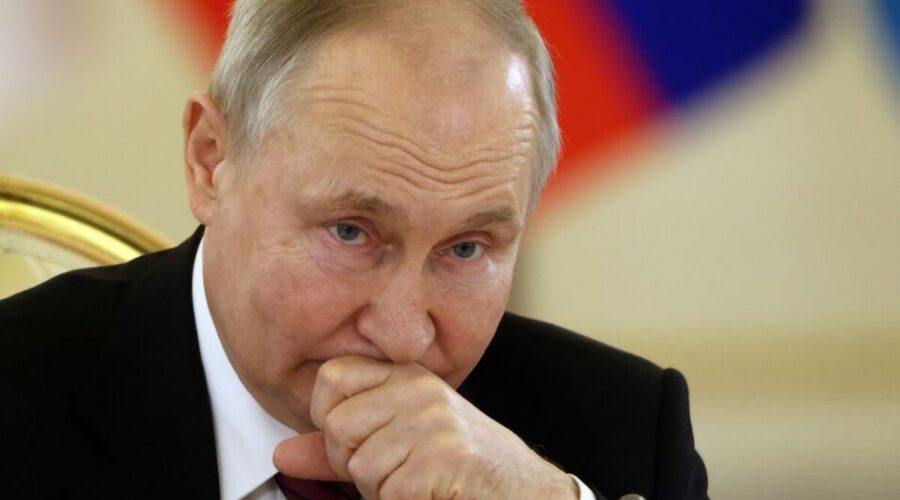Desperate Putin taxes Russian oligarchs in bid to save Ruble in freefall

In response to the financial strain caused by the ongoing war in Ukraine, the Kremlin has decided to implement a one-time windfall tax on major Russian companies and their oligarch owners. According to an announcement by Russia’s finance ministry on Tuesday, a draft bill has been approved to impose a single windfall tax of up to 10 per cent on large Russian companies.
Andrei Belousov, the first deputy prime minister, revealed in an interview with RBC TV that this tax could potentially generate around 300billion rubles (approximately £2.83billion) in total tax revenue.
Interfax reported Belousov stating that the companies themselves had proposed the implementation of these taxes.
Belousov said: “They understand that they had huge windfall profits for 2021 and 2022, simply massive, bigger than the budget.
“Many of them are true patriots, no matter what people say about them. They identify very closely with the country.”

The Russian finance ministry stated in the announcement that the tax revenue would be allocated towards social spending; however, no additional information was provided regarding the specifics.
Although the announcement did not explicitly mention the targeted companies, analysts interviewed by the Financial Times suggested that Russia’s fertiliser and metals sectors were probable contenders.
The announcement comes as the ruble has lost 34 per cent of its value against the US dollar since its high point just over a year ago.
Last June, 100 units of the currency bought $1.85 at the peak of Russia’s exploitation of skyrocketing prices for its energy exports. This has fallen to $1.21 today.
We use your sign-up to provide content in ways you’ve consented to and to improve our understanding of you. This may include adverts from us and 3rd parties based on our understanding. You can unsubscribe at any time. More info
Soon after the fighting broke out Russia’s central bank was forced to more than double the interest rate overnight from 9.5 per cent to 20 per cent, in a last-ditch attempt to rescue the ruble that had lost 40 per cent of its value against the US dollar.
Over the year since, as the war ground into one of attrition and Moscow replaced the loss of its European market with exports to China and India, policymakers gradually brought the rate back down to 7.5 per cent.
In January, the International Monetary Fund (IMF) upgraded its prediction for Russia’s economic growth in 2023 from 0.3 per cent to 0.7 per cent. The UN’s Washington-based financial agency has suggested, however, that military spending has been artificially propping up this figure, and that the underlying economy is actually far weaker.
Russia remains a significant exporter of commodities, particularly in the fields of agriculture and certain industrial raw materials, despite facing sanctions and boycotts from various Western nations and their allies.
These sectors, in turn, benefit the companies operating within them.
Source: Read Full Article

